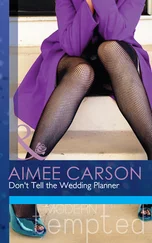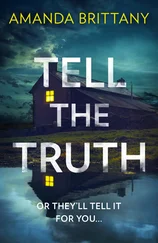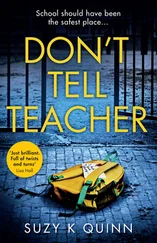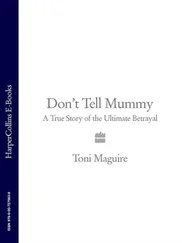“Do you feel the hunger?” I asked her.
“Not usually,” Maria said. “Except at night. I guess it’s because there’s nothing to take my mind off it then. I get up and drink some water. That usually helps.”
“I wish there were something we could do to change this situation.”
“Me too,” said Maria. “But I feel so powerless.”
When we got back with the pail, I was surprised to see Dolik, Leon and Nathan just coming home from the labour they’d been assigned. Maria chatted with Nathan, and I met up with Dolik before he went into his house. “The police kept you working for extra hours today.”
“It’s to make up for time we’re taking off. Tomorrow at sunset, Yom Kippur begins,” he said, running his fingers through dirt-encrusted hair. “We’ve been given tomorrow and Wednesday off.”
I knew that Yom Kippur was the holiest day of the year for Jews, and that it was mostly spent at synagogue. “It’s encouraging that the Commandant has given you time for Yom Kippur,” I said. “Maybe things will start to get better now.”
But the next morning, another poster was nailed to the church door. This one read: All Jewish males are ordered to report to the town square at noon today.
Most people who weren’t Jewish stayed away from the square at noon, for fear of being targeted by mistake, but I had to go. I couldn’t imagine being anywhere else while the fate of my friends was at hand. Mama felt the same way and so did Maria, so we stood together with the Kitais and the Segals.
When the Commandant walked through the crowd, he paused, his eyes on Mama. His brows creased as if in thought, but he said nothing. He continued to the centre of the square.
“It has come to my attention,” he said, “that the Jews of Viteretz have been hoarding gold. I hereby demand one kilogram of gold to be collected from them.”
This statement was met by shocked silence. The Commandant paced up and down, then stopped again. “Where is the head of my Judenrat ?”
There was movement in the crowd just behind us and Shimon Cohen stepped forward.
“Herr Commandant,” he said, his eyes fixed on the toes of Commandant Hermann’s leather boots. “We are very poor in this town. I cannot imagine there being a kilogram of gold in this entire region , let alone Viteretz itself.”
“I don’t believe you,” said the Commandant. “Now, Mr. Cohen, please have the forty finest Jewish men of Viteretz step forward.”
Mr. Cohen’s eyes widened at the order, and at first he said nothing, but I could imagine the thoughts that were going through his mind. Everyone who had been singled out in this way had ended up being murdered. Should Mr. Cohen really call up the finest Jewish men? But if he didn’t do exactly as the Commandant ordered, would the results be even worse?
Mr. Cohen’s body was shaking as he stumbled out some names. As the men came forward, even I knew that he had spared the finest. He hadn’t named Mr. Segal, and he hadn’t named the rabbi. The forty men he did call to the square were good citizens, but they were mostly elderly, and more than one seemed to be in very poor health.
“These do not look like your finest , Mr. Cohen,” said the Commandant, as he strutted in front of the forty doomed men. “Why, you didn’t even call up Mr. Baruch, who is on the Judenrat with you.”
He scanned the crowd again, then his eyes lit up. “There you are. Mr. Baruch, please come and join these fine men.”
The crowd parted and Mr. Baruch reluctantly came forward.
“No need to look so frightened,” said the Commandant as he stepped in front of each man and gazed into his eyes. “You are just my hostages.”
He gestured to a row of armed policemen who stood at attention at the back of the square. “Take these men to the city jail.”
The policemen surrounded the forty-one men and escorted them away.
“Now, Mr. Cohen,” said the Commandant. “I will release those men once you have given me the kilogram of gold. You have until tomorrow, at sunset.”
I don’t know how he did it, but somehow Mr. Cohen collected the one kilogram of gold. People gave up their wedding rings, family heirlooms, cherished old coins. I was desperate to help, but we had no gold.
Mr. Cohen turned it over to the Commandant — all of it.
At dusk the next day, as Yom Kippur began, the men were loaded onto trucks, driven to the outskirts of town —
— and shot.
Chapter Seventeen
Lebhaft
Throughout the fall of 1941 I felt like the world was closing in on us. The streets now bore German names. So did the stores. Even our town was no longer Viteretz. The Commandant renamed it Lebhaft. Both words meant breezy, but the wind that blew through now was filled with fear.
When I was out on the street, I’d keep my eyes cast down whenever I passed someone who was German or Volksdeutche. Most walked by as if I didn’t exist, and that was fine with me. One exception was the new blacksmith. Often, when we passed on the street, Herr Zimmer would bow his head slightly and say under his breath, “Greetings, Fräulein Krystia.”
I wondered if he could get in trouble for being so polite to a Slav, but he only greeted me that way when no one else was around.
On a chilly afternoon as I was coming home from the Commandant’s, I decided on a whim to stop by the blacksmith shop.
“It’s nice to see you, Fräulein Krystia,” he said. “This is a good place to get warm on a cold autumn day. Come and sit.” He pointed to the stool in the corner. The same stool I used to sit on to watch Tato work, so many years ago.
I perched on its edge and a sense of peace washed over me. It wasn’t just the warmth of the coal fire in the forge, it was the memory of when Tato was still alive, and when there was no war.
Herr Zimmer pulled his visor down, but before he could continue his work, I said, “Thank you, Herr Zimmer.”
“For what, Fräulein?”
“For treating me like a human.”
He lifted his visor again and looked at me. “These Nazis,” he said. “I don’t agree with them.”
His comment surprised me. The Nazis had given him my family’s blacksmith shop. They had given him part of a house on this street as well. If he didn’t agree with what they were doing, why was he going along with it?
“Excuse me, Herr Zimmer, but I have a question. It may not be a polite question.”
The blacksmith smiled at that. “You want to know why I am here if I am not a Nazi. Am I correct, Fräulein Krystia?”
“Yes… That is what I was going to ask you.”
“I had a blacksmith shop in a village near Chernivtsi,” he said. “I also had a teenage son. My wife died long ago.”
So, like Frau and Marga Schneider, Herr Zimmer was an ethnic German from Ukraine. “Is your son still at home?” I asked.
He shook his head. “The Soviets took over my shop and our house during the time of the Nazi-Soviet Pact. We were deported to the Reich. My son was drafted into the German army, and I was selected to live here. I pray every day that my son survives the war. But even more, I pray that my son does not become a Nazi.”
Herr Zimmer’s words hit me hard. I had been so wrapped up in my own troubles, and also so resentful of the invaders, that I had never stopped to consider that not all of them were bad. Was I just as guilty as the Nazis of judging others by things they couldn’t control?
“I am sorry about your son, Herr Zimmer,” I said. “And I’m sorry that you lost your home.”
“Fräulein Krystia, when I look at you, I think of my son. I hope that strangers will treat him as an individual, and not by what they think he is.”
Читать дальше
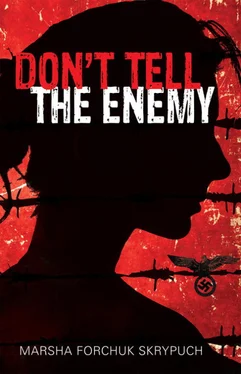


![Quiet Billie - Don't mistake the enemy [СИ]](/books/421973/quiet-billie-don-t-mistake-the-enemy-si-thumb.webp)




